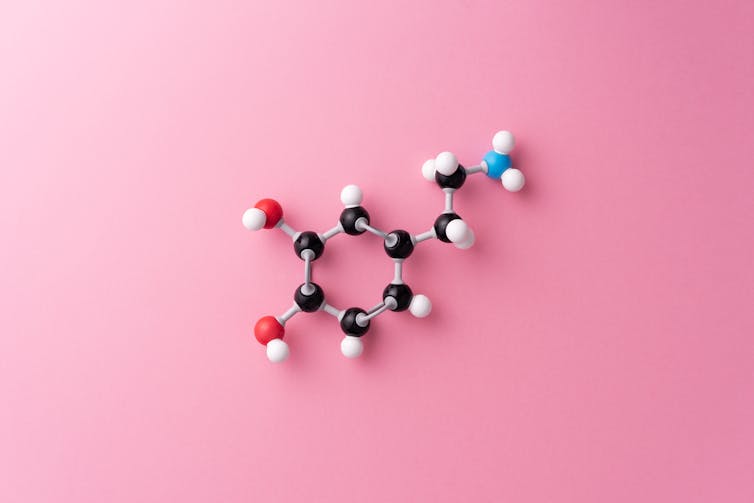Why You Can't Stop Clicking - Time for Dopamine Fasting! - Escaping The Validation Feedback Loop [December 1st, 2019 Video]:
Dopamine fasting: why Silicon Valley is trying to avoid all forms of stimulation
It’s the latest trend in the world’s tech capital. But is it really possible to cut yourself off from everything in life that excites you – and can it be any good for you?
They have done biohacking, clean sleeping and the keto diet, but now Silicon Valley types have coined a new health trend – dopamine fasting. It is thought that depriving yourself of the neurotransmitter, a chemical messenger that motivates us to do things, can help to reboot or rebalance the brain. Fasting might entail abstinence from technology, artificial light, food, drink, conversation, eye contact – essentially anything that an individual finds stimulating. But is there any sense to the fad?
“Retreating from life probably makes life more interesting when you come back to it,” says David Nutt, director of the neuropsychopharmacology unit in the division of brain sciences at Imperial College London. “Monks have been doing it for thousands of years. Whether that has anything to do with dopamine is unclear.”
It is possible to manipulate the production of dopamine through diet, Nutt says. He mentions the velvet bean, which contains high concentrations of a precursor to dopamine. “There is no question that you can have a dietary influence on the production of dopamine,” he says. “Starvation would probably reduce dopamine to some extent.”
Dopamine is often thought of as a reward, but Joydeep Bhattacharya, who leads the research group of cognitive and neuroscience at Goldsmiths, University of London, points out that dopamine is really “about learning the anticipation of the reward, and not the pleasure itself. It is primarily released in this anticipation phase.”
This could counteract dopamine fasting because abstinence might trigger a greater number of thoughts about the things from which a person is abstaining. “The moment we try to abstain, naturally our brain will crave that – so there will be more of a dopamine release.” Similarly, anyone who abstains and has a sense of occasion about the abstinence would be in danger of triggering the production of dopamine, as would a person who periodically congratulates themselves on their abstinence during the abstinence.
Rather than casting this sort of intense, time-limited disengagement as a dopamine fast, it may be better seen as meditation. But dopamine-related dangers lurk there, too. As Nutt, who has studied the production of dopamine in monks, says: “If you transcend in meditation, you might get euphoria, a release of dopamine.” It would seem nowhere is safe.
Source
Dopamine Fasting: an expert reviews the latest craze in Silicon Valley
It’s the latest fad in Silicon Valley. By reducing the brain’s feel-good chemical known as dopamine – cutting back on things like food, sex, alcohol, social media and technology – followers believe that they can “reset” the brain to be more effective and appreciate simple things more easily. Some even go so far as avoiding all social activities, and even eye contact.
The exercise, dubbed “dopamine fasting” by San Francisco psychologist Dr Cameron Sepah, is now getting increasing international attention. But what exactly is it? And does it work? As someone who studies the brain’s reward system, I’d like to share my knowledge with you.
Dopamine is a neurotransmitter – a chemical messenger produced in the brain. It is sent around the brain conveying signals related to functions such as motor control, memory, arousal and reward processing. For example, too little dopamine can result in disorders like Parkinson’s Disease, involving symptoms of muscle rigidity, tremors and changes in speech and gait. One of the treatments for Parkinson’s is the drug L-DOPA, which can cross the blood-brain barrier and be converted into dopamine to help ease the symptoms.
Dopamine is also important in the reward system in the brain. It is activated by primary rewards like food, sex and drugs. Importantly, the brain’s reward system can “learn” over time – cues in our environment that we associate with potential rewards can increase the activity of dopamine even in the absence of an actual reward. So just being in a sweet shop and thinking about sweets can activate our brain’s dopamine.
This expectation and anticipation of rewards is called the “wanting” in neuroscience language. As one of the main symptoms of depression is “anhedonia” – the lack of wanting, interest and pleasure in normally rewarding experiences – dysfunctional dopamine regulation has also been linked to this disorder. Some treatments for depression, such as the drug bupropion, are designed to increase dopamine levels in the brain.

Dopamine chemical formula. bogdandimages/Shutterstock So, given the important role of dopamine in vital functions in the human brain, why would we want to fast from it? The idea of dopamine fasting is based on the knowledge that dopamine is involved in unhealthy addictive behaviours.
As described, dopamine underpins wanting. For instance, a drug addict may say they no longer want to take drugs. But when in certain places where drug-related cues are present, the brain’s wanting system kicks in and addicts are overcome with strong urges to take the drug. Dopamine fasters believe that they can reduce desires and craving for unhealthy and even unwanted behaviours by reducing dopamine.
Does it work?
First we need to be clear, it is certainly not advisable, even if we could, to reduce the amount of dopamine in the brain as we need it for everyday normal functions. Further, simply banning a particular reward, like social media, isn’t going to reduce the levels of dopamine per se, but rather it can help reduce the stimulation of dopamine.
Therefore it is possible to reduce the amount of dopamine activity. But the key to doing this is to reduce our exposure to the triggers associated with the rewards that initiate the wanting for the rewards in the first place. After all, it is these cues that initiate the craving and the desires to engage in behaviours that help us get the rewards. Thus just cutting out rewards doesn’t necessarily stop the brain from making us crave them – activating dopamine.
However, that this would “reset the brain” is not really correct – there is no way of even knowing what the baseline is. So from a neuroscience perspective, this is nonsense for the time being.

Addicted? Dopamine fasting won’t help. Sam Wordley If you find that you want to cut down on what you feel are unhealthy behaviours, such as spending too much time on social media or overeating, then you could start by reducing your exposure to the environmental cues that trigger the desires to carry out the unhealthy behaviours.
For example, if you go on your phone too much in the evenings when you are alone, try turning off the notifications sounds. This way dopamine is not being activated by the cues and therefore not signalling the urges to pick up the phone. And if you think you drink too much alcohol – ending up in bars with work colleagues most nights of the week – try to go somewhere else in the evenings, such as the cinema.
The symptoms of unhealthy behaviours are similar to the signs of substance abuse. These might include spending the majority of the time engaging in the behaviour, continuing the behaviour despite physical and/or mental harm, having trouble cutting back despite wanting to stop and neglecting work, school or family. You may even experience symptoms of withdrawal (for example, depression, irritability) when trying to stop.
In these instances, you may want to think about removing the cues that stimulate your dopamine neurons – a sort of dopamine fasting.
Source
Question Your Habits
Smartphones and social media apps aren’t going anywhere anytime soon, so it is up to us as the users to decide how much of our time we want to dedicate to them. Unless the advertisement-based profit model changes, companies like Facebook will continue to do everything they can to keep your eyes glued to the screen as often as possible. And by using algorithms to leverage our dopamine-driven reward circuitry, they stack the cards—and our brains—against us. But if you want to spend less time on your phone, there are a variety strategies to achieve success.
Doing things like disabling your notifications for social media apps and keeping your display in black and white will reduce your phone’s ability to grab and hold your attention. Above all, mindful use of the technology is the best tool you have. So the next time you pick up your phone to check Facebook, you might ask yourself, “Is this really worth my time?”
Source
- Home
- Forum
- Chat
- Donate
- What's New?
-
Site Links

-
Avalon Library

-
External Sites

- Solari Report | Catherine Austin Fitts
- The Wall Will Fall | Vanessa Beeley
- Unsafe Space | Keri Smith
- Giza Death Star | Joseph P. Farrell
- The Last American Vagabond
- Caitlin Johnstone
- John Pilger
- Voltaire Network
- Suspicious Observers
- Peak Prosperity | Chris Martenson
- Dark Journalist
- The Black Vault
- Global Research | Michael Chossudovsky
- Corbett Report
- Infowars
- Natural News
- Ice Age Farmer
- Dr. Joseph Mercola
- Childrens Health Defense
- Geoengineering Watch | Dane Wigington
- Truthstream Media
- Unlimited Hangout | Whitney Webb
- Wikileaks index
- Vaccine Impact
- Eva Bartlett (In Gaza blog)
- Scott Ritter
- Redacted (Natalie & Clayton Morris)
- Judging Freedom (Andrew Napolitano)
- Alexander Mercouris
- The Duran
- Simplicius The Thinker







 Reply With Quote
Reply With Quote




Bookmarks